By Uran Kalakulla
Part Four
Nazism and Communism
Memorie.al / Nazism lasted 12 years, while Stalinism lasted twice as long. In addition to many common characteristics, there are many differences between them. The hypocrisy and demagogy of Stalinism was of a more subtle nature, which was not based on a program that was openly barbaric, like Hitler’s, but on a socialist, progressive, scientific and popular ideology, in the eyes of the workers; an ideology that was like a convenient and comfortable curtain to lie to the working class, to lull the sharpness of intellectuals and rivals in the struggle for power.
One of the consequences of this peculiarity of Stalinism is that the entire Soviet people, its best, most capable, hardworking and honest representatives, suffered the most terrible blow. At least 10-15 million Soviets lost their lives in the torture chambers of the KGB, martyred or executed, as well as in the camps of the Gulag and others like them, camps where it was forbidden to correspond (in fact they were prototypes of the Nazi death camps); in the mines in the ice of Norilsk and Vorkuta, where people died from cold, from hunger, from crushing work in countless construction sites, in the exploitation of forests, in the opening of canals and during transportation in lead-lined wagons, or in the flooded barns of the death ships.
Continued from the previous issue
Here is the history:
Albania in the 1960s was a total disappointment. It broke up with the entire socialist camp, while with the Westerners; the Albanian communists had long since broken up. Everyone thought then that Albania would inevitably fall prey to an intervention by one superpower or another. If this intervention were to be carried out by the Khrushchevites, then “revisionist liberalism” would be formalized in our country, always mono-party, but giving the opportunity to breathe, at least, with one nostril. And Hoxha and his friends would find their “deserved place”, according to the Byzantine Russian manner, if not in prison, at least somewhere in the Siberian tundra.
But, if the Americans were to come here, democracy would certainly be installed here, with all its wonders. In “Khrushchev’s Soviet liberalism”, it would perhaps have been possible to begin with a somewhat freer literary and cultural activity and, through it, later, with a political dissidence, which would perhaps have created the possibilities of more concrete political realizations, as happened, in fact, in 1968 in Czechoslovakia, with the “Prague Spring” and, later, in Poland with Lech Walesa’s “Solidarity”.
And with the transition to the western wing, the birth of political parties would happen like mushrooms sprouting after the rain, as actually happened throughout the former Soviet bloc after the fall of communism. Here, it was precisely this expected political reality that we responded to, in that 1960 transition. Today it is easy to speak with conjectures and fabricated predictions, but I say with conviction that no one at the time thought that Hoxha and his clique would find an ally like Mao’s China, to get them out of the situation and save them from being screwed into the expected pit. But this time too, as with Tito, Hoxha was greatly helped by fate and he knew how to take advantage of it skillfully, certainly for his own benefit.
(And this must be admitted to be a merit, at least for his own skin). Perhaps, in such a situation, non-intervention in Albania, neither by America nor by the Soviet Union, was part of that “political philosophy” of the time, which briefly said: “Neither mine, nor yours, but let it lie miserable, lonely, forgotten…”! We, a group of fellow teachers, who lived in Tirana and who had known each other for many years, responded to this situation.
Our occasional conversations on the problems in question were concretized with the need to establish a political group, which would be ready at the moment when any of the two variants of the solution to the situation that I mentioned above were realized. This group would be the first organizational nucleus for building the structure of a social-democratic party in Albania. We wanted to establish, certainly in the clandestine, this structure, to extend it step by step, at least in the main and most important cities of the country, so that the next day, with the creation of suitable conditions, we could then go out openly, to expand the party to all parts of Albania.
So, having an established and already ready structure, we would not have difficulty starting the work, convinced, as we were, that with the birth of pluralism, political groups and parties would spring up in the country like mushrooms after the rain, exactly as it actually happened thirty years later, from the beginning of 1991. Moreover, we would have an organizational experience and a defined ideological basis and, consequently, we would have with us both the moral right and the experience of such a work. We had not thought that our work would be quick, on the contrary. And not easy, much less without risks. And we took all of them into account.
We thought that the work of our preparation and waiting to find the right moment to come out openly, in the square, and to affirm ourselves as a political force, would probably take years, so we had set as our duty to be both prudent and patient. Of course, we knew very well what awaited us if our work was discovered by the State Security. I remember very well that in our conversations, I more than once repeated to my friends, a paraphrase of Chernyshevsky, who says that in police regimes, politics is not a walk with pleasant conversations on the “Nevsky” Boulevard, but in prison, torture, bullets and ropes!
Thus, we were not a terrorist group that would take up arms to fight the ruling power, nor would we engage in acts of sabotage, because we knew that our forces, even if they were tenfold, or even a hundredfold, would not be able to withstand the repressive machine of the communist state, where there was no free path left to breathe after combat actions, no base of departure, where you could then return to recover from the losses inevitably suffered. We wanted to erect only the skeleton of a clandestine party, with elements of our convictions, proven, determined, loyal and invincible. And within this initial structure, to continue to elaborate our ideology, our political philosophy, program and founding statute. Comrades sometimes joked with me, saying that I had the “column theory”. And this was essentially true.
Our political position
First of all, we were determined anti-communists, to the point of death, to hatred. The Hodgson reality not only made us suffer economically, like the whole people, but having a more or less developed social conscience, we suffered even more spiritually. That reality, therefore, did not satisfy us in the economic, social, spiritual, cultural directions. On the contrary. We were completely devoted to the West and America in the first place. We were, therefore, with democracy, against any form of dictatorship, of any kind.
And, of course, first of all, the communist one, which for us was the blackest of all that humanity, had experienced, in its entire history, and why not evens our own generation. Even the Soviet Union, even with its “Khrushchev liberalism”, was viewed not only with suspicion, but hatred of Stalinism prevented us from seeing or appreciating evens a weak reflection of light in the long and frightening night of communist reality. After all, “Khrushchev Soviet democracy” was for us a kind of petty and ugly plagiarism of the Western one, while mono-partyism continued to be the number one characteristic of the Soviet political regime. To us, the Khrushchev Soviet reality of that time was, in many ways, a kind of surrogate for Russian Bolshevism, of the anemic time of Leninist NEP.
Having been educated with the Albanian nationalist spirit, which never reached the chauvinist extremism of our earthly neighbors, without even being irredentists, we wanted the liberation of all Albanian lands from the foreign yoke and, if possible, with their desire, also the unification with our country. Our ideology led us to a position of balance, between the extreme left and the extreme right, not only as a political system, but also as an economic one. We were for not touching even a single inch of private property; we wanted the property, completely violated by the communist regime, to be returned to its rightful owners, if it could be proven with documents or precise evidence, as to who it belonged to.
This is with regard to real estate ownership in cities, why not also in villages: land, shops, houses, workshops, factories, hotels, etc. We wanted agricultural property to be returned to its rightful owners, but in this regard, we would also demand that landless peasants not be left without anything, especially after the collapse of communist cooperatives, which for us were nothing more than serfdom or slave ownership, with new absolute masters, whose names were no longer patricians, dukes, princes, counts, barons and marquises, but simply party and government. The real possibility of acquiring landless peasants existed, because the inventory of agricultural land had increased significantly, with the drying up of swamps and the opening up of new lands.
Of course, we did not look with any sympathy on the agrarian reality of the pre-war period in our country, that of lazy beylers and exploitative agallars of the oriental feudal type. We wanted a modern agriculture, with the creation of large private farms and even private, capitalist cooperatives, but in which the work of the agricultural worker in the former especially, and even in the latter, would be supervised not in favor of the owners, but of the workers themselves, helping free unions in the agrarian field as well, and even strongly encouraging them.
We aimed for the factories built by the communist state, telecommunications, railways, mines, electricity, urban services, etc., in a word, the entire infrastructure, as they say today, to become the property of the employees of these branches, where each of them would have their own dividend, would have their own shares in that activity, according to the criteria of contribution to work, personal ability, qualification, etc., without allowing the administration of these branches to ride on the backs of the workers, to benefit unjustly from them, with a logic of primitive, savage, cruel capitalism. But, on the other hand, we thought that private property, as is logical, should be subject to state taxation, which would create financial income for the state, so that this state could carry out the tasks that were incumbent on it in the fields, which we will see below.
Of course, this taxation would be fair and best studied, based on the principle of progressive taxation: the greater the net profit, the greater the taxation, but always leaving the productive and profitable owners the necessary breathing space, not only to fully increase their personal and family well-being, but also to strongly enable the growth, expansion, and occasional modernization of their productive or public enterprises, in the city and in the countryside.
The state, which had shown it to be a very bad administrator and cruel exploiter of the economy and the sweat of the working people, would no longer be the owner, not even of the banks, with the exception of the National Bank. It would only have the state administration, central and local, public order, the army, education and public health, as well as the construction of major public works. But even in the latter (education, health, culture), private initiative could be left free, but under precise state supervision, only with the aim of preventing possible tendencies that would be contrary to the spirit of national morality, as well as maximum profits and abuses to the detriment of the people’s health.
Thus, every social group or individual could form theaters, schools and private activities, but always supervised by the state. We would not be allowed in any way to enter our country, any form of prostitution, homosexuality, pedophilia, drugs, pornographic literature or publications, films of this nature, which contradict the moral tradition of our people, which we honored to the maximum, but without falling, on the other hand, into the positions of an oriental conservatism or of any other nature. We, of course, were for the modernization of Albanian life, to the level of the advanced countries of the West, but we were against debauchery. With efficient social policy, we wanted the shameful, ugly, and traditional phenomenon of begging to disappear in our country once and for all.
Care for the lonely cripples, for the elderly in asylums, for orphanages, would be the social priority of the state, to the maximum satisfaction of the needs of this social category. Repression against crime would have a priority of the first degree and public order and civil tranquility, to be exemplary. We aimed for Albania, as we emphasized above, to reach or somewhat approach levels such as those of Federal Germany and the Scandinavian countries, which we took as an example, as the most accurate European models. We were quite critical of classical capitalism, which seemed to us savage, exploitative, antihuman as it was at the beginning of the twentieth century, and even earlier, with methods such as that of the American Taylor, ironized and even stigmatized so beautifully and accurately in the first silent films of Charlie Chaplin, etc.
We were for a humane state, where every government team that would take power, based on one of the first articles of the Constitution of our country, would swear before the people and its Parliament, just as doctors swear with the Hippocratic formula, before receiving their diploma to have the right to practice their profession. But this did not mean at all that we aimed for a completely and completely welfare state, which would encourage parasitism, laziness, abuse, injustice of another wing.
Here, this was, in essence, our ideological and political point of view, our ideology. In Albanian, we called this reality, desired and possible, socio-political, “social democracy” and which in the European arena, where it was born, is called social democracy. So, democracy not only in the political plan, but also in the economic and social, but certainly without falling to the levels of egalitarianism that communism supposedly demanded, an egalitarianism that stifled the freedom of the individual, the spirit of personal initiative, the freedom for economic, scientific, artistic and creative activity, without the approval and convenience of a ruling clique, always oppressive, exploitative, with the “new God”, the disgusting dictator at the head.
We were for a moderate, natural equality, equality in well-being and wealth, not equality in poverty, in misery, as communism achieved. We were sympathizers of an Italian Saragati, of a German Olenhauer and Willy Brandi and especially of Scandinavian social democracy, which led those countries to admirable world primacies. In terms of national ideology, we were for the realization of the dream of our great renascentists, Abdyl, Sami and Naim Frashëri, and in more recent times of a Mit’hat Frashëri, Skënder Muço, Musine Kokalari, Suat Asllani and their friends. We, nothing more, called ourselves the continuers of their ideas and efforts, in new times and with new forces.
The idea and the ideators
The initial idea for the creation of our political formation came to me, Riza Kuçi and Emil Prenushi, after occasional conversations, as early as 1958. But the work then remained only in the exchange of conversations, thoughts, ideas. The concretization took place two years later, when other friends also joined these conversations. We were now me, Riza Kuçi, Agim Musta and Tanush Kaso, all of whom were at that time teachers in the district and city of Tirana. This happened around August 1960. Then a worker from Durres, Kahreman Paftali (like my nephew), with an electrician’s profession, also joined our group.
The group held regular meetings once a month, sometimes in nature, sometimes in each other’s homes, and sometimes in one of the halls of the Faculty of Philology, since some of us were also correspondence students at that time. The group continued its meetings until May 1961. In these meetings, political developments in the country and the world in general were analyzed and the appropriate conclusions were drawn. Then, ideological problems were discussed, for deepening them, as well as further organizational problems.
There was also talk of securing printing technology, which would be used for necessary cases, but for now, neither the printing of any program nor the publication of any tract was decided. In fact, no minutes were kept at the meetings, in order to avoid material evidence in the event of the group being discovered, and especially without ensuring a secure basis for the technology and future archive. Kahremani was charged with the technology, which would create a kind of special machine so that the Security would not be able to identify where our materials would be printed, when we deemed it reasonable and necessary to print these materials and distribute them (tracts, manifestos, programs, etc.).
One of the tasks was to further expand the group, but carefully and while maximally preserving the norms of conspiracy. The expansion was intended to be done first in Tirana, but also in other cities, where each of us could have close, trusted and proven friends. It was decided, for example, that each member of the group would have contact with two such people, one at a time, whom only he would know and they would not know at all who the others were. Only the group leader could know the entire possible network of members, and not even the whole of it. I was elected group leader, with the right to two votes in making decisions.
In the context of the expansion, Tanush Kaso, in one of the meetings, mentioned the name of an old friend of his, whom he had been a classmate of in a seventh grade school in Shkodra. After years, he had met his friend from Shkodra in Durres, where he was already living and working, having been away from Shkodra for years. The two of them had talked and Tanush had concluded that they should bring him closer to our group. In the next meeting, Tanush insisted that I also get to know his friend, overcoming the previously established norms. I made the mistake and accepted it and, thus, the meeting took place in one of the bars in the center of Durres. Tanush and I attended that meeting. His friend was called Pjetër Filipi or, Pjetër Toma.
He had known him by these two names. But when we met, he introduced himself by another name, namely Pjetër Arbinri. Another surprise was that, along with the newly-acquainted Pjetri, there was another unknown person at the table, not only by me, but also by Tanushi. And Pjetri himself introduced him to us, as one of his most loyal, tried and close friends. This very close friend of his was called Zeqir Koçi, originally from Golloborda, with a secondary vocational education and who worked as a technician or a standard-bearer in a construction company in the city, while Pjetri himself, after having worked for a few months at the agricultural high school in the Durrës district (in Xhafzotaj), was unemployed, because he had been suspended from education, because he had been involved with one of his students. Memorie.al




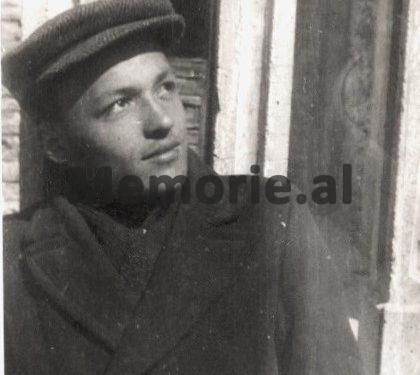

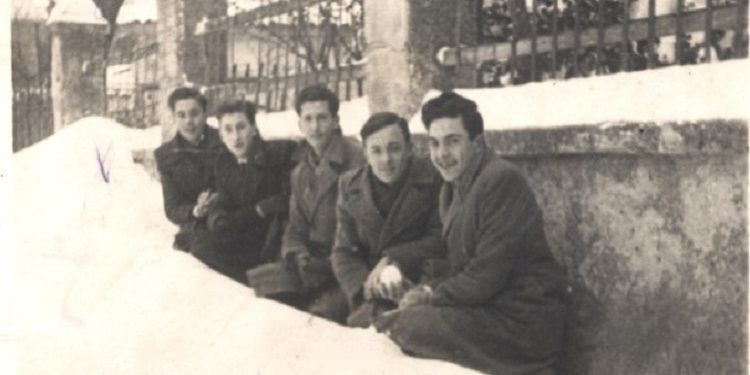
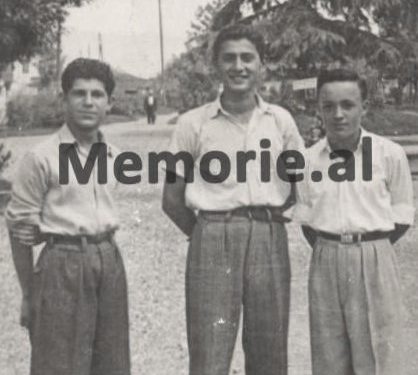
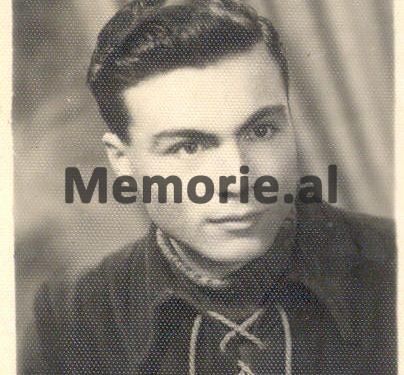
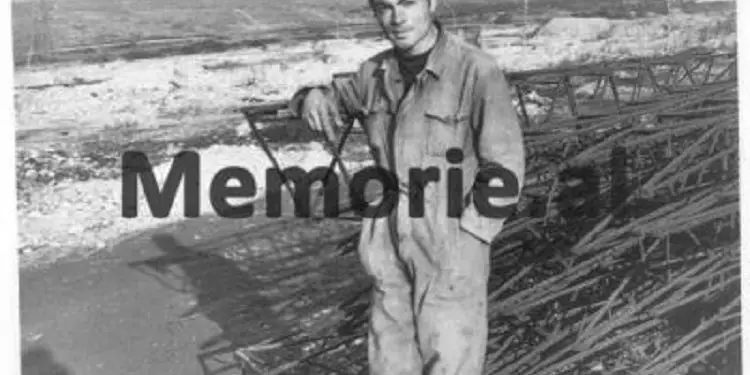


![“The ensemble, led by saxophonist M. Murthi, violinist M. Tare, [with] S. Reka on accordion and piano, [and] saxophonist S. Selmani, were…”/ The unknown history of the “Dajti” orchestra during the communist regime.](https://memorie.al/wp-content/uploads/2026/02/admin-ajax-3-350x250.jpg)
![“In an attempt to rescue one another, 10 workers were poisoned, but besides the brigadier, [another] 6 also died…”/ The secret document of June 11, 1979, is revealed, regarding the deaths of 6 employees at the Metallurgy Plant.](https://memorie.al/wp-content/uploads/2026/02/maxresdefault-350x250.jpg)


